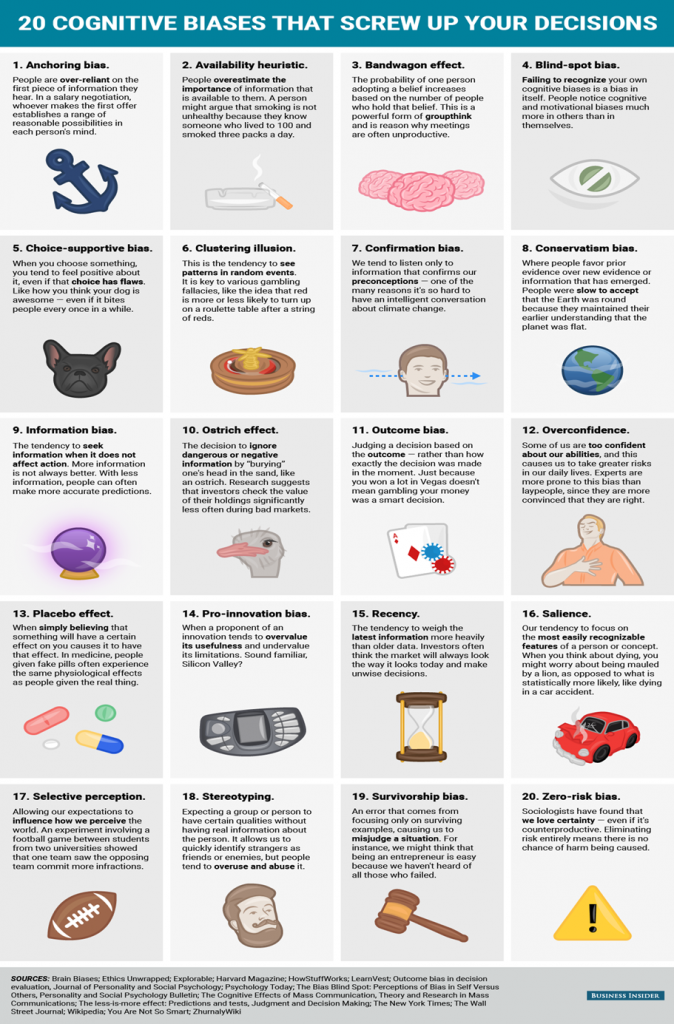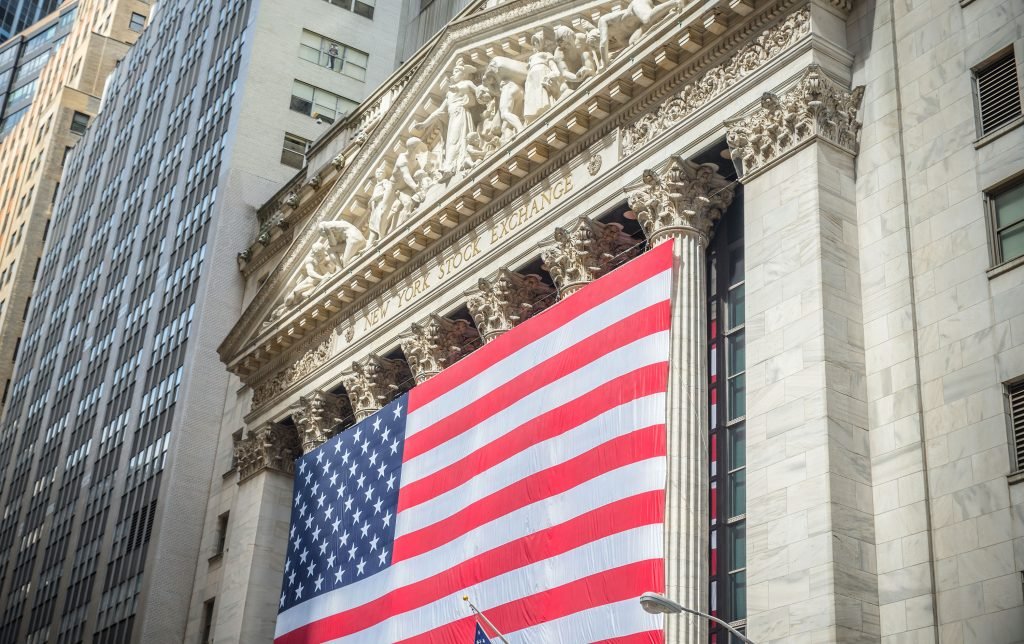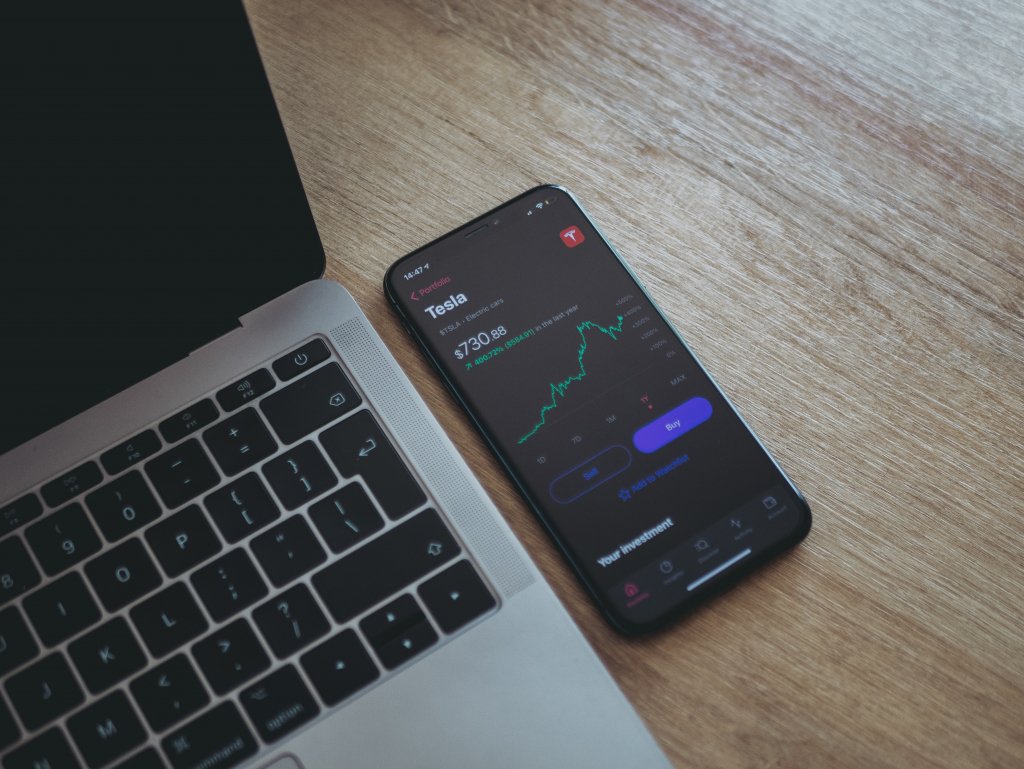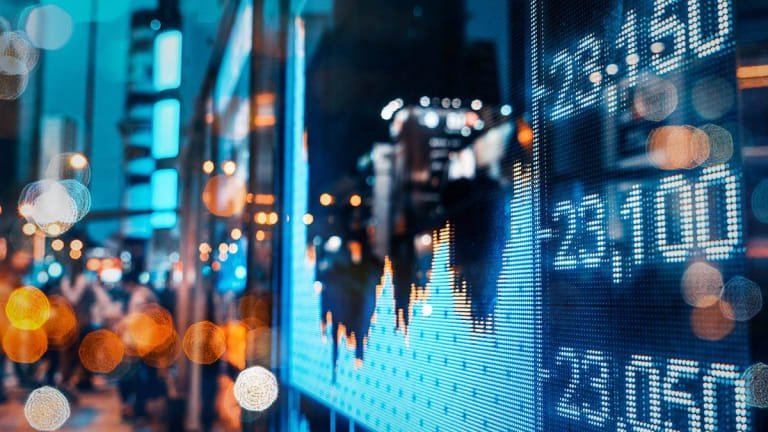Part 4
Don’t Carry The Lehman Hammer- Avoid Cognitive Bias
“I suppose it is tempting, if the only tool you have is a hammer, to treat everything as if it were a nail.” -Abraham Maslow
“What I mean by that is we have to avoid cognitive bias. There are many forms of it. We are biologically wired to it. The more you recognize that you have it, the more likely you are not to have it.” – Tom Lee
One of the main ‘hammers’ people use in analysis is what happened to Lehman Brothers itself. We tend to take mental shortcuts and our brains are optimized for keeping us alive, not necessarily being highly logical beings. Sometimes, what helped us survive in pre-industrial, hunter-gathering societies is anathema to the grounded and collected disposition needed to successfully navigate markets.
What color do you see? At first, don’t the shirts look as though they are solid filled with the colors of the grid? This isn’t the only example. Just as we see colored shirts, bearish market commentators see imminent depressions everywhere usually informed by dubious but sometimes deceiving connections. The evolution of the human pre-frontal cortex has been rapid and there is no precedent to its’ speed in all of known evolutionary biology. We became smart fast, but other parts of us can impair this ability which we can all see sometimes makes us seem too big for our intellectual britches. This is what Keynes refers to as animal spirits. It can cut both ways.
Let’s remember most of human history was a Hobbesian nightmare: life was nasty, brutish and short. Our bodies are designed to withstand and adapt to such environments as we very recently on the evolutionary timeline needed these more animalistic impulses of fight or flight to survive daily life in pre-industrial society.
Take for instance, last September when the large Chinese property developer Evergrande was experiencing acute financial distress. There was a flurry of commentary that this was China’s Lehman Brothers moment and that a similar cascading effect as to what happened in 2008 might plunge the global economy into recession. Only that’s the thing about traumatic and significant events, they cloud our judgement and understanding, and we perceive the risks of a repeat as higher than it is. The thing about true bubbles is, no one or few people see them coming.
At FSInsight we believe mastering your own cognitive bias is just as crucial a pillar of investing as understanding the fundamentals of your chosen investment. Like gold it is simultaneously a game against your own shortcomings and biases and the other gofers, or investors in our case. Time and time again, studies find that investors are often their own worst enemies.
Fidelity did a survey of its extensive brokerage accounts and found something that is simultaneously hilarious and tragic. The most successful accounts were those who simply forgot they had accounts; these investors were thus spared from their own mistakes. Cognitive bias often leads us to buy high and sell low.
Research only available to banks & hedge funds, now available to individuals
|
This is why we believe this rule is eminently important. You can be completely correct in your thesis and understanding of markets and which way you think they will go. However, if you have not mastered your cognitive bias and you freak out and sell every time there is a drop and buy only when it becomes clear a stock is doing well, then odds are your returns won’t be so hot.
One of the best ways to avoid cognitive bias is through using different lenses of analysis and seeing where they converge and diverge as valuable information for your decisions. We have a world-class Technical Analysis department headed by Mark Newton. His 2022 outlook, which has proven prescient, is available here.

-
Nothing New Under The Sun- Importance of Looking at Cycles
-
Equities Are Junior in The Capital Structure- Bonds Lead Stocks
-
Don't Shout At The Market- It Doesn’t Care About You (Or Any One’s) Opinion
-
Don’t Carry The Lehman Hammer- Avoid Cognitive Bias
-
Confidence Drives Markets: Confidence Changes Faster Than Fundamentals
-
Demographics Are Destiny
-
Don't Fight the Fed: The Fed is The Most Powerful Entity in the Financial World











